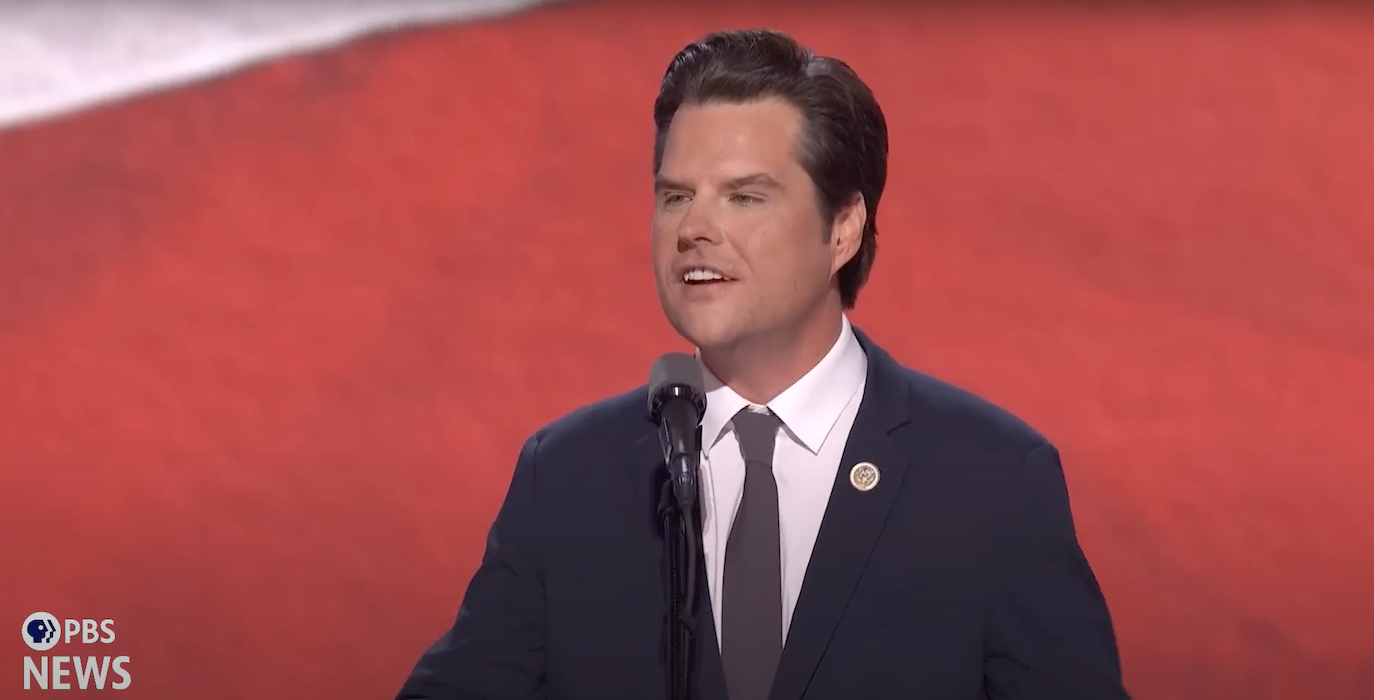Florida’s LGBT community is growing increasingly frustrated as they face setbacks and discrimination.
NAPLES, Fla. — From books to bathrooms, laws and rules being passed by Florida legislators and members of the State Board of Education are tightening restrictions on the LGBT community. Despite efforts, members of the LGBT community in Florida find themselves losing debates, losing ground, and, more noticeably, losing their tempers.
Evidence of the growing frustration was on full display at the Aug. 23, 2023 meeting of the Florida State Board of Education (SBE) in Naples, as members passed additional measures to further restrict transgender ideology in the state’s education system. Florida Department of Education (DOE) Commissioner Manny Diaz, Jr. was also present.
Proposed rules included expanding restrictions on the use of restrooms that do not correspond with a person’s biological sex to include colleges and private schools. Disciplinary actions for educators who violate an established law regarding sexual misconduct were also sharpened.
Related Stories
During the course of the meeting, opponents of the new measures became progressively agitated. Verbal attacks against Board members and supporters of the proposals became increasingly more personal.
At one point, the level of civility had sunk so low that SBE Chair Ben Gibson advised the opponents that the Board was “trying to be very respectful and civil” to them and asked that they “maintain respect and civility as well.”
Board Member Christy Grazie, speaking virtually, addressed the notable “angst” she observed. She tried to explain that “bathroom spaces are very intimate and private,” which is why they have been historically segregated by biological sex. She further suggested that America’s culture should not be forced to go against this historical trend simply to accommodate a “new ideology” that is “challenging the science of male and female, which doesn’t change.”
Books
At the Aug. 23 meeting, a new rule was adopted to establish the position of a “magistrate,” who will weigh complaints filed by parents who challenge the procedure through which a book was approved.
Rain Johnson, a 10th-grade student at a private school in Lakeland, held up a copy of “Some Assembly Required: The Not-So-Secret Life of a Transgender Teen,” informing the Board she was “trans” and ”gay” before she “read a book.” She then angrily suggested that trying to “bypass a system already in place to ban books” was “simply stupid and very confusing.”
The new magistrate would not “bypass” but rather ensure that the “system already in place” was upheld.
CJ Smith said, “The system is already ridiculous enough without adding more steps,” accusing the Board of “snowplow parenting” and suggesting they’re “making the assumption that children in general cannot handle certain topics.”
Kaity Danehy-Samitz defined the measure that allows some parents ”the right to fight against something they don’t believe in” as “fascism with extra steps.”
Sarah Parker accused the Board of banning the education of black people, insinuating that black parents work late hours and are unable to sign permission forms allowing their children to read restricted books.
Bathrooms
The measure that inspired the most heated objections was the proposal to expand restrictions on the use of restrooms to biological sex from just K-12 schools to include colleges and private schools.
Rain Johnson asked why the Board was ”obsessed about kids’ genitals.”
“Why do we need to think of children’s genitals?” She screamed. “Please!”
Ms. Danehy-Samitz accused Board members of “voting in alignment” with supporters of the measure, whom she labeled as an “extremist hate group.”
“We’re not going to keep taking it,” she warned, pausing, looking to her friends before laughing.
“I really, really look forward to getting to know every single one of you,” she told the Board. “Have a good day. Jesus is disappointed.”
Lola Smith, a Collier County student identifying as non-binary, argued that “students are not being harmed or harassed” by transgender or non-binary students in school bathrooms.
The argument was echoed by others.
India Miller, a transgender individual said transgender people have been using restrooms that don’t align with their biological sex “for decades,” insisting there have been “no issues.”
Sarah Parker said the risks posed by transgender individuals in restrooms were a “non-issue.”
Those claims are wrong.
Virginia: A biological male student who identified as a female abducted and sexually assaulted a female student at a school in May 2021. Rather than taking legal action against the offender, the school allowed him to transfer to another school, where he abducted and sexually assaulted a second female student in October 2021.
New Mexico: A 12-year-old girl was raped by a transgender student in the “trans-inclusive” bathroom in October 2021.
Oklahoma: A transgender student physically assaulted two female students in the restroom in October 2022.
Oklahoma: Another transgender student severely beat a 15-year-old female sophomore in the girl’s bathroom in October 2022.
California: A transgender student entered a girls’ locker room. After being confronted, the male student spit on the girls and exposed his genitalia. A video shows the significantly larger male pummeling several smaller female students after the altercation moved outside of the locker room.
LGBT Laws
At the behest of Florida Gov. Ron DeSantis, state legislators have already passed a plethora of restricting LGBT ideology.
SB1028 was signed into law on June 1, 2021, establishing the ”Fairness in Women’s Sports Act,” which mandates that an individual’s participation in school sports at all levels must be based on biological sex at birth.
CS/CS/HB 1557, the Parental Rights in Education measure, branded by opponents as the ”Don’t Say Gay Bill,” was signed into law on March 28, 2022. The measure forbids “classroom instruction on sexual orientation or gender identity in kindergarten through grade 3.”
While a February 2022 study (pdf) from the Public Opinion Research Lab at the University of North Florida found that 49 percent of Floridians opposed the original law prior to its passage, a survey released by Floridians for Economic Advancement after the bill’s passage found that 52 percent of Florida’s Democrat voters opposed teaching children in kindergarten through third grade about sexual orientation in the classroom.
Nationally, a September 2022 New York Times and Siena Poll showed that 70 percent opposed lessons on sexual orientation and gender identity being taught to elementary school children.
On May 17, Mr. DeSantis signed four transgender-related bills into law.
CS/HB 1521 prohibits anyone from “willfully entering restroom or changing facility designated for the opposite sex and refusing to depart when asked to do so,” and authorizes the attorney general ”to bring enforcement actions.”
CS/SB 254 grants Florida courts “temporary emergency jurisdiction” over children under the age of 18 and allows ”for purposes of warrants to take physical custody of a child” that is being “subjected to sex-reassignment prescriptions or procedures.” The law also prohibits the expenditure of state funds for “sex-reassignment prescriptions or procedures” and requires the immediate suspension of the “license of a health care practitioner who is arrested for committing, attempting, soliciting, or conspiring to commit” violations of the law.
SB 1438 prohibits someone “from knowingly admitting a child to an adult live performance” that “depicts or simulates nudity, sexual conduct, or specific sexual activities.” Violators of the law will be charged with a first-degree misdemeanor, punishable by up to one year in prison and a fine up to $1,000. Businesses that have a liquor license and knowingly violate the law will have that license suspended. The first violation receives a $5,000 fine. The second gets a fine for $10,000.
On June 24, a District Judge in Florida issued a temporary injection (pdf) against the law.
CS/CS/HB 1069 extended the prohibition on sexual orientation or gender identity instruction from pre-K through the eighth grade and prohibits school boards from imposing requirements that force personnel or students to use pronouns that do not correspond with someone’s biological sex.
On April 19, the Florida DOE approved a rule (pdf) to prohibit classroom instruction on sexual orientation and gender identity in pre-K through third grade without exception and in grades four through 12 except under specific circumstances.
These measures come on top of efforts to ban books in Florida’s schools that are considered inappropriate for children.
On Oct. 19, 2022, the Florida DOE announced the passage of Rule 6A-7.0713 (pdf), amending HB 1467 (pdf), which expanded the scope of school library media centers to say books in classroom libraries must also be approved by a media specialist. The notice sent some Florida teachers scrambling to shut down their classroom libraries in fear of being charged with a third-degree felony.
According to the June 2023 LGBTQ+ Business Climate Index survey (pdf) from Out Leadership released in June—which ranks states on a scale from 1-100 according to LGBT friendliness, New York ranked highest with a score of 93.67. Also in the top five were Connecticut (93.27), Massachusetts (92.67), New Jersey (90) and Colorado (88.67).
Among the five least friendly states, Arkansas ranked first with a score of 32, followed by South Carolina (32.5), Louisiana (33.5), Tennessee (34.4) and South Dakota (34.97).
Surprisingly, Florida ranked 33rd among the 50 states with a score of 50.6, only a slight fall from its 2022 score of 53.43
By the Numbers
At a May 17 press conference, Equity Florida Senior Political Director Joe Saunders said, “DeSantis has just signed into law the largest slate of anti-LGBTQ bills in one legislative session in the state’s history. This is an all-out attack on freedom.”
However, polling shows that most Americans support such measures.
A Washington Post/KFF survey published May 5 showed that the majority of Americans support anti-trans policies, including 68 percent who oppose providing puberty-blocking medication to kids aged 10-14 and 58 percent who oppose the same for kids between 15-17.
Nearly 60 percent said gender is determined by your birth sex, and the vast majority believe trans-women should not be allowed to compete against biological females in youth sports (62 percent), high school (66 percent), college (65 percent), and professional sports (65 percent).
While 64 percent believe teaching students in grades 9-12 about “trans identity” is appropriate, the majority believe it is inappropriate to teach the subject to children in kindergarten-third grade (77 percent), grades 4-5 (70 percent), and grades 6-8 (62 percent).
An Aug. 29 survey conducted by researchers at Arizona State University, Stanford University in California, and the University of Houston, Texas confirmed that society is unwilling to provide more rights to transgender people, including the ability to “choose for themselves which bathroom to use.”
In Arizona, 54 percent opposed allowing transgender people to choose which bathroom they would use. Only 25 percent expressed support. In California, a considerably more trans-tolerant state, 45 percent were opposed, while 35 percent expressed support. In Texans, 61 percent expressed opposition, while only 25 percent
" Conservative News Daily does not always share or support the views and opinions expressed here; they are just those of the writer."





Now loading...